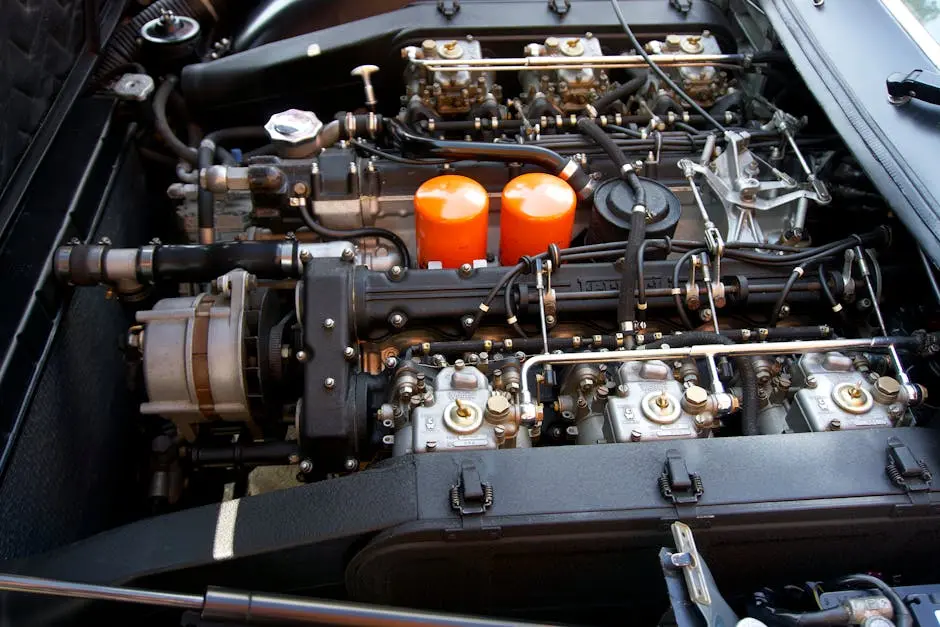
What Should I Know Before Getting ECU Tuning?
Share
ECU tuning can be an exciting way to enhance your vehicle’s performance, but it’s important to be well-informed before diving in. In this guide, we’ll cover key aspects you should consider to make the best decision for your car and your driving experience.
Understand What ECU Tuning Is
ECU tuning involves modifying the engine control unit to improve performance, efficiency, and responsiveness.
At its core, it’s about making the vehicle run more efficiently. The ECU, or engine control unit, is essentially the brain of your car, managing various engine functions. When you tune it, you’re optimizing its settings to unlock enhanced power and drivability.
However, it’s important to understand that tuning needs to be done carefully. Not every change leads to positive results, which is why it’s critical to understand the science behind it.
Research Different Tuning Methods
Learn about the various tuning methods available, such as chip tuning, remapping, and piggyback systems, to find the best fit for your needs.
Each method has its pros and cons. For instance, chip tuning typically offers more straightforward enhancements but may lack the customization that remapping provides. On the other hand, piggyback systems are often seen as a temporary solution, allowing more flexibility but potentially leading to conflicts with stock settings.
By comparing these options, you can make a more informed choice based on your driving style and overall performance goals. This initial research sets the foundation for successful and rewarding ECU tuning.
Consider Your Vehicle’s Compatibility
Not all vehicles are suitable for ECU tuning, so verify whether your make and model can handle tuning modifications without issues.
Some cars have restricted options when it comes to tuning due to their hardware or software configurations. Prior to proceeding, consult with knowledgeable resources or your tuning specialist to ensure that your vehicle is compatible for such changes.
Furthermore, compatibility extends beyond the ECU alone; sometimes related systems may be impacted. Always assess whether additional modifications are required after tuning to achieve optimal performance.
Know the Potential Risks Involved
Be aware of the possible risks and drawbacks, such as warranty voiding, engine reliability issues, or potential performance problems if not done correctly.
For instance, modifying your ECU can inadvertently lead to engine knocking or overheating if the tuning isn’t executed precisely or if the vehicle isn’t properly maintained afterwards. This can result in costly repairs down the line.
Tuning may also void manufacturer warranties, leaving you with the burden of covering repair costs for any future issues. Understanding these risks can help you prepare adequately and make necessary adjustments post-tuning.
Select a Reputable Tuning Specialist
Choose a qualified and experienced tuner who has positive reviews and a good track record to ensure a safe and effective tuning process.
A reliable tuning specialist will not only have a wealth of knowledge but also be equipped with the right tools and software to achieve your specific tuning goals. Don’t hesitate to ask for references or check their previous work to assess their expertise.
Remember, the person tuning your vehicle is essentially altering the brain of your car. You want it in the hands of someone who respects the craft and puts safety first.
Understand the Costs Associated
ECU tuning can involve various costs, including labor fees, software, and potential upgrades, so budget accordingly.
While some tuning options might seem budget-friendly upfront, hidden costs can pile up. For example, you might need additional hardware upgrades for optimal results which could surprise you later.
Ultimately, setting aside a clear budget not only prepares you for the initial tuning but helps you avoid unexpected financial woes. It’s wise to keep a cushion for possible adjustments and future maintenance.
Learn About Post-Tuning Follow-ups
Follow up with your tuner after the initial tuning to ensure everything is performing as expected and to make any necessary adjustments.
Moreover, the tuning process doesn’t end once the check engine light goes off. Regular check-ups will ensure that the settings remain optimal, helping to verify performance improvements and pinpoint any emerging issues.
Tuning can be a dynamic process, and small adjustments may be needed as you adapt to your newly tuned vehicle. Keeping the lines of communication open with your tuner can help maintain the benefits of your investment.
Final Thoughts on ECU Tuning
By understanding these essential factors, you’ll be better equipped to make informed choices about ECU tuning. Whether you’re aiming for performance improvements or better fuel efficiency, taking the time to educate yourself will pay off.

